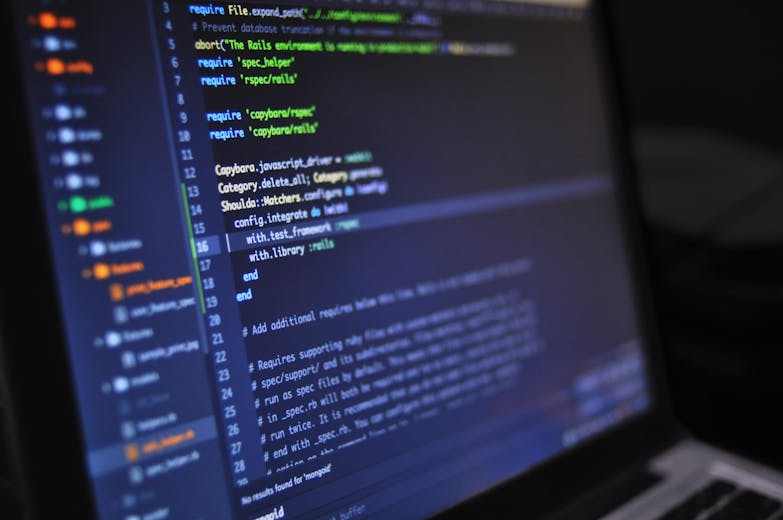Harnessing Quantum Mechanics for Computation
Quantum computing leverages principles like superposition and entanglement to tackle complex problems beyond the reach of classical computers, promising revolutionary advancements.
Discover Quantum Quantum computing represents a fundamental shift from classical computing. Instead of bits representing 0 or 1, it uses quantum bits (qubits) that can exist in multiple states simultaneously due to quantum mechanical principles.
This ability, combined with phenomena like entanglement where qubits become interconnected, allows quantum computers to explore a vast number of possibilities concurrently, offering potential exponential speedups for certain types of problems.
While still an emerging field facing significant challenges, quantum computing holds the promise of solving complex simulations, optimization tasks, and cryptographic challenges currently intractable for even the most powerful supercomputers.

The Power of Qubits & Superposition
Unlike classical bits (0 or 1), a qubit can be in a superposition state – effectively representing 0, 1, or a combination of both simultaneously. This exponentially increases the information capacity as more qubits are added.

Entanglement: A Deeper Connection
Quantum entanglement links qubits so their fates are intertwined, regardless of distance. Measuring one entangled qubit instantly influences the state of the others, enabling powerful correlations for complex computations.

Hardware Approaches & Challenges
Building quantum computers involves various technologies (superconducting circuits, trapped ions, photonics). Key challenges include maintaining qubit coherence (preventing quantum states from degrading) and correcting errors caused by environmental noise.

Quantum Algorithms: New Recipes
Specific algorithms exploit quantum properties for speedups. Shor's algorithm can factor large numbers exponentially faster (a threat to current encryption), while Grover's algorithm offers quadratic speedup for searching unstructured data.

Potential Application Areas
Quantum computing promises breakthroughs in simulating molecules for drug discovery and materials science, solving complex optimization problems (logistics, finance), and potentially impacting fields like AI and cryptography.

The NISQ Era & Future Outlook
We are currently in the Noisy Intermediate-Scale Quantum (NISQ) era, with machines having tens to hundreds of error-prone qubits. The long-term goal is building fault-tolerant quantum computers capable of solving large-scale problems reliably.

Revolutionizing Problem Solving
Quantum computers aren't designed to replace classical ones for everyday tasks. Their strength lies in tackling specific classes of problems involving massive complexity, simulation of quantum systems, or large-scale optimization that are currently intractable.
Identifying these high-impact problems is key to realizing quantum's potential benefits.
Understanding the core principles of quantum mechanics is essential to grasping how quantum computers operate.
Superposition
- Qubits exist in multiple states at once
- Unlike classical bits (0 OR 1)
- Represents 0, 1, or both
- Enables parallel exploration
- Fundamental quantum property
Entanglement
- Interconnected qubit states
- "Spooky action at a distance"
- Measurement of one affects others
- Creates powerful correlations
- Essential for complex algorithms
Qubits vs Bits
- Qubit: Quantum Bit
- Bit: Binary Digit (0 or 1)
- Qubit state is probabilistic
- N qubits = 2^N potential states
- Classical N bits = N states
Quantum Gates
- Operations applied to qubits
- Analogous to classical logic gates
- Manipulate superposition/entanglement
- Often represented by matrices
- Building blocks of quantum circuits
Decoherence
- Loss of quantum state
- Interaction with environment (noise)
- Causes errors in computation
- Major hardware challenge
- Requires shielding/cooling
Quantum Measurement
- Observing a qubit's state
- Collapses superposition to 0 or 1
- Outcome is probabilistic
- Irreversibly alters quantum state
- Key part of retrieving results

It's important to distinguish between quantum computing's long-term potential and current realities. While breakthroughs are happening, we're still in the early stages (NISQ era). Manage expectations and focus on near-term research and algorithm development.
Drug Discovery Acceleration
Simulating molecular interactions to design effective pharmaceuticals faster.
Materials Science Breakthroughs
Designing novel materials with specific properties (e.g., superconductors, catalysts).
Financial Modeling
Optimizing investment portfolios and pricing complex financial derivatives.
Optimization Solutions
Solving complex logistics, scheduling, and supply chain optimization problems.
AI/ML Enhancement
Potentially accelerating certain machine learning tasks and algorithms.
Cryptography Transformation
Breaking current encryption methods (via Shor's) and enabling quantum-safe cryptography.
Fundamental Science Research
Simulating quantum systems to deepen understanding in physics and chemistry.
Climate Change Modeling
Improving complex climate simulations and designing carbon capture solutions.
Secure Communication
Enabling new forms of secure communication using quantum key distribution (QKD).
Weather Forecasting
Potentially improving accuracy of complex atmospheric and weather models.
Traffic Flow Optimization
Finding optimal routes and timings for large-scale transportation networks.
Personalized Medicine
Analyzing complex biological data for tailored treatment strategies.
What is quantum computing simply?
It's a new way of computing using the weird rules of quantum mechanics (like things being in multiple places at once) to solve specific, very hard problems much faster than normal computers.
How is it different from my laptop?
Your laptop uses bits (0 or 1). Quantum computers use qubits (0, 1, or both simultaneously via superposition). This allows them to explore many possibilities at once for certain calculations.
What are superposition and entanglement?
Superposition allows a qubit to be in a combination of states (0 and 1) at the same time. Entanglement links qubits so their states are correlated, no matter the distance.
What problems can quantum computers solve?
They show promise for simulating molecules (drug/material discovery), complex optimization (logistics), breaking current encryption (factoring large numbers), and specific search problems.
When will we have useful quantum computers?
We are in the early stages (NISQ era) with noisy, small-scale machines. Truly powerful, error-corrected quantum computers capable of solving large real-world problems are likely still years, potentially decades, away.
Is quantum computing a security risk?
Potentially, yes. A large-scale quantum computer running Shor's algorithm could break much of today's standard encryption. This drives research into quantum-resistant cryptography (QRC).
How can I learn more about quantum computing?
Explore online courses (Coursera, edX), read introductory articles and books, follow research labs and company blogs (IBM Quantum, Google Quantum AI, etc.), and experiment with quantum programming toolkits (like Qiskit).
